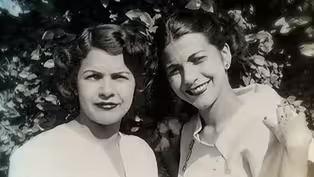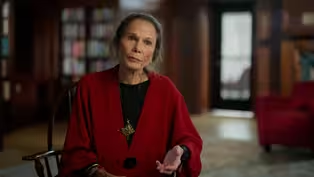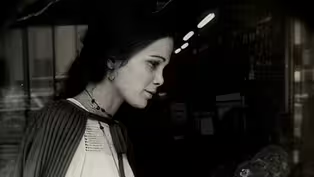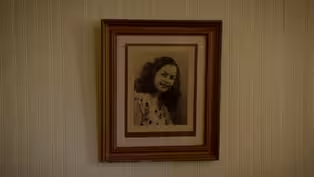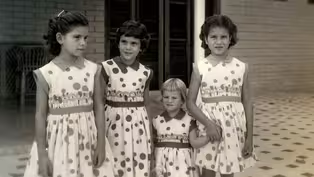
Julia Alvarez: A Life Reimagined
Preview: 9/17/2024 | 1m 57sVideo has Closed Captions
Explore the story of writer Julia Alvarez, who blazed a trail for a generation of Latino authors.
Explore the story of Dominican-American poet and novelist Julia Alvarez, who burst onto the literary scene and blazed a trail for a generation of Latino authors.
Problems playing video? | Closed Captioning Feedback
Problems playing video? | Closed Captioning Feedback
Support for American Masters is provided by the Corporation for Public Broadcasting, AARP, Rosalind P. Walter Foundation, Judith and Burton Resnick, Blanche and Hayward Cirker Charitable Lead Annuity Trust, Koo...

Julia Alvarez: A Life Reimagined
Preview: 9/17/2024 | 1m 57sVideo has Closed Captions
Explore the story of Dominican-American poet and novelist Julia Alvarez, who burst onto the literary scene and blazed a trail for a generation of Latino authors.
Problems playing video? | Closed Captioning Feedback
How to Watch American Masters
American Masters is available to stream on pbs.org and the free PBS App, available on iPhone, Apple TV, Android TV, Android smartphones, Amazon Fire TV, Amazon Fire Tablet, Roku, Samsung Smart TV, and Vizio.
Buy Now
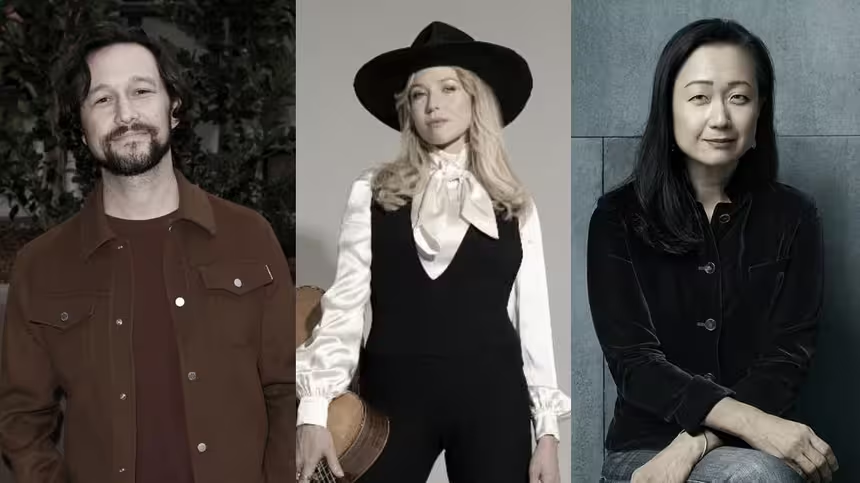
A front row seat to the creative process
How do today’s masters create their art? Each episode an artist reveals how they brought their creative work to life. Hear from artists across disciplines, like actor Joseph Gordon-Levitt, singer-songwriter Jewel, author Min Jin Lee, and more on our podcast "American Masters: Creative Spark."Providing Support for PBS.org
Learn Moreabout PBS online sponsorship(bright music) - People cannot ignore good literature.
People cannot ignore these stories because they were so well written.
- For extraordinary storytelling, the National Medal of Arts to Julia Alvarez.
- [Julia Alvarez] I wanted to write about the tías and I wanted to write about the lore that comes when women are talking as they're doing their housework, which I thought you couldn't write about.
- Gladys sang as she worked in her high, clear voice.
Mangulinas, merengues, salves- - There are people in Israel who read Julia.
They're in Serbia, Croatia, Japan.
She found the words to express herself and those stories related to a lot of people.
- [Alvarez] When we came to the United States, we left everything behind, even our language, our cultures, our families.
We were living in a hard dictatorship in the D.R.
- I remember that all of a sudden you just disappeared.
- [Alvarez] We weren't told.
We came home one day and Mami dijo, vamos a Boca Chica.
- And when we got in the plane, Mami and Papi just hugged each other and cried.
- You leave the country and that stuff is still in you.
We were constantly being warned that the world was not safe for us.
- There are very few writers of the Latin American diaspora that hold the same weight as her.
- I felt like I wanted to give voice to the landscape of being Latina, of coming from another place.
Our stories belong to all of us, but if you don't know how to read, you don't have the key to that treasure chest.
How could I not do something?
- Julia's is in search of space, physical, emotional space, and she's in search of identity.
(bright music)
How Julia Alvarez brought truth to the Mirabal sisters in her novel "In the Time of the Butterflies"
Video has Closed Captions
Clip: 9/17/2024 | 1m 29s | Julia Alvarez brought the story of the assassination of the Mirabel sisters to life in her novel. (1m 29s)
How Julia Alvarez conceived the story for her novel "Afterlife"
Video has Closed Captions
Clip: 9/17/2024 | 1m 5s | "Afterlife" was Julia Alvarez's way of "[giving] voice to that landscape of aging." (1m 5s)
How Julia Alvarez was inspired by the working class
Video has Closed Captions
Clip: 9/17/2024 | 2m 52s | Julia Alvarez wrote about the interior lives of working class women. (2m 52s)
Julia Alvarez on the female perspective in "In the Time of the Butterflies"
Video has Closed Captions
Clip: 9/17/2024 | 2m 6s | Julia Alvarez wanted to write about dictatorship from a female perspective for her second novel. (2m 6s)
The true story behind "How the García Girls Lost Their Accents"
Video has Closed Captions
Clip: 9/17/2024 | 2m 5s | Julia Alvarez recounts the day she had to escape from the Dominican Republic with her family. (2m 5s)
Providing Support for PBS.org
Learn Moreabout PBS online sponsorshipSupport for PBS provided by:
Support for American Masters is provided by the Corporation for Public Broadcasting, AARP, Rosalind P. Walter Foundation, Judith and Burton Resnick, Blanche and Hayward Cirker Charitable Lead Annuity Trust, Koo...

